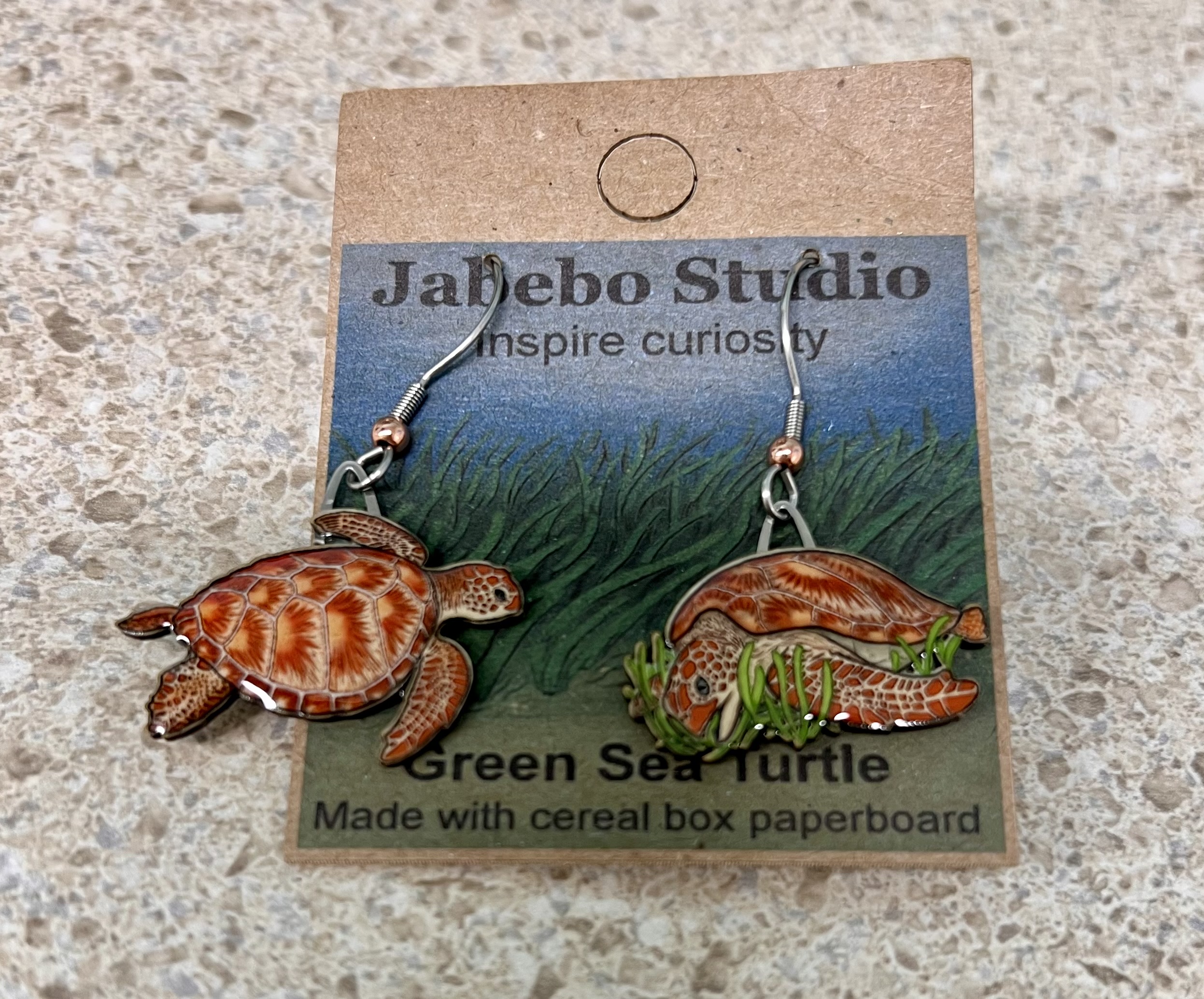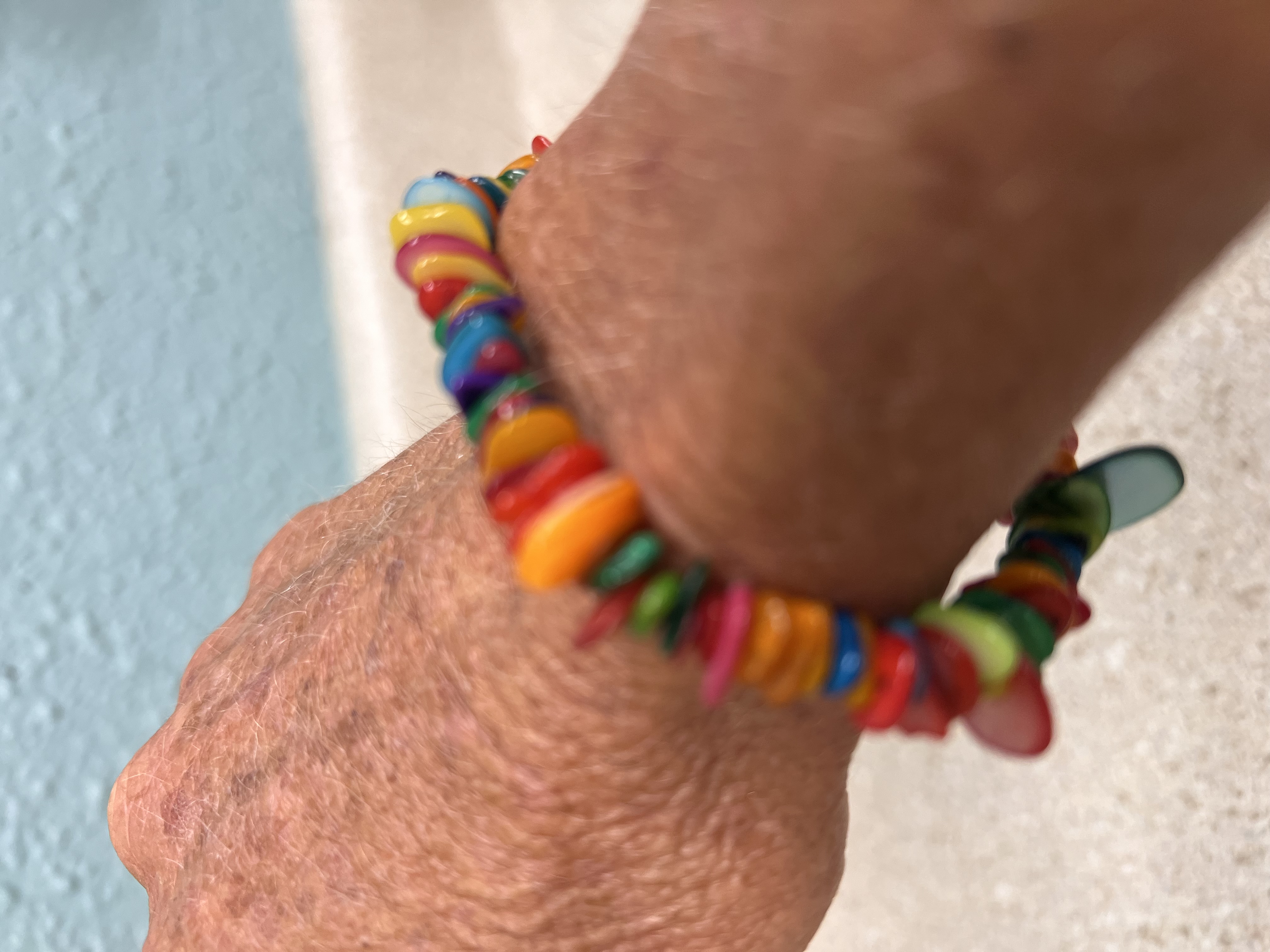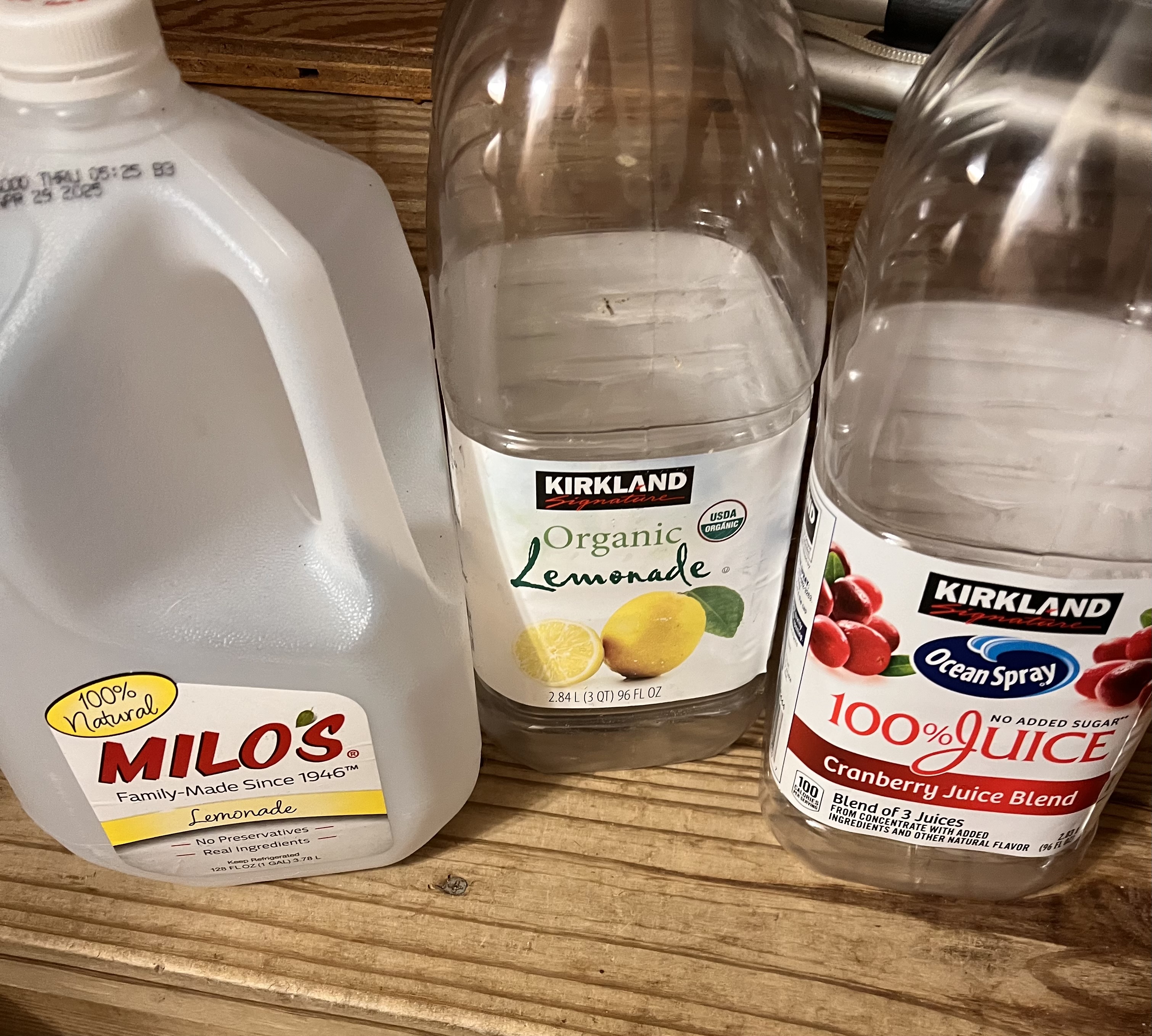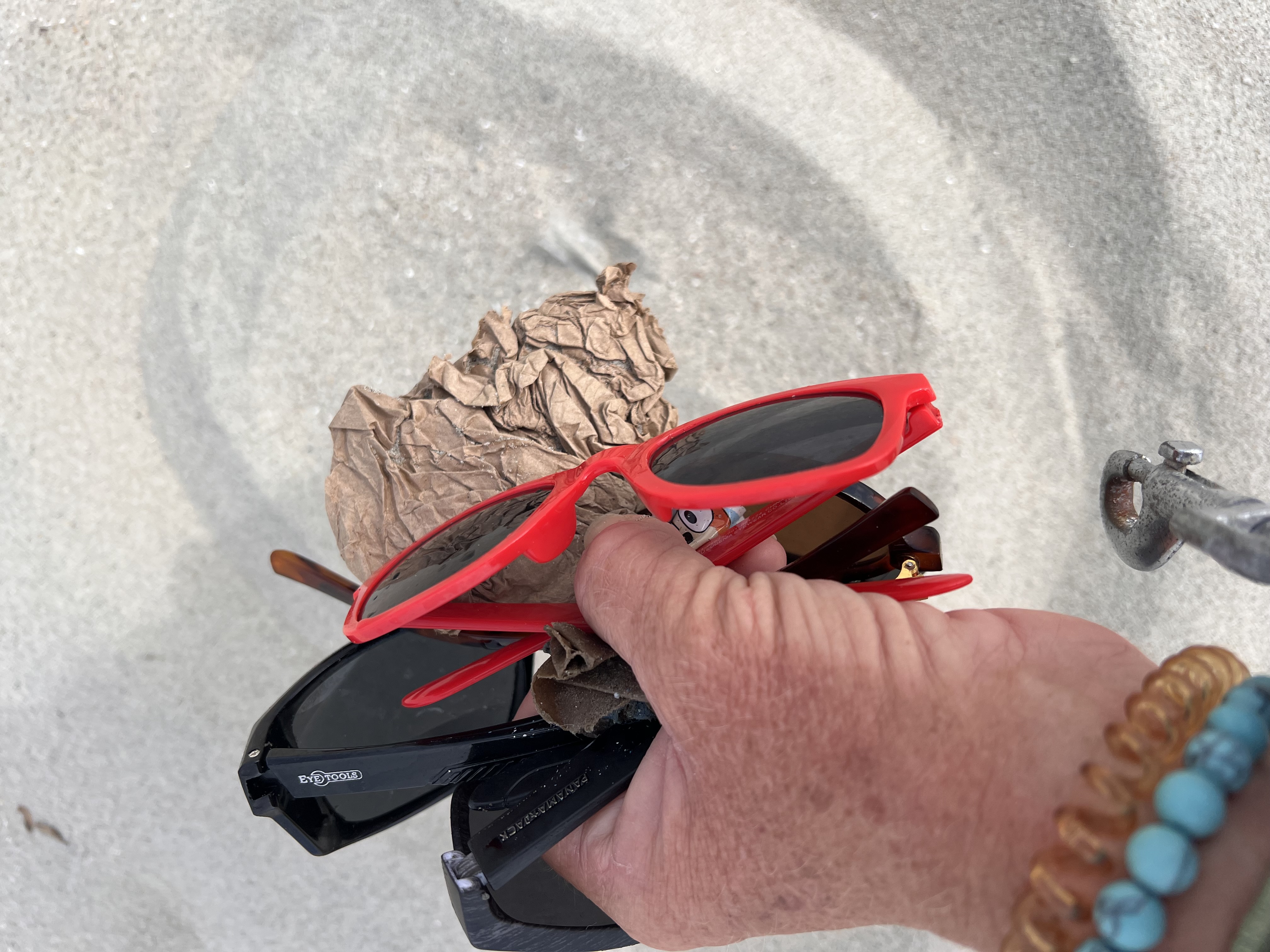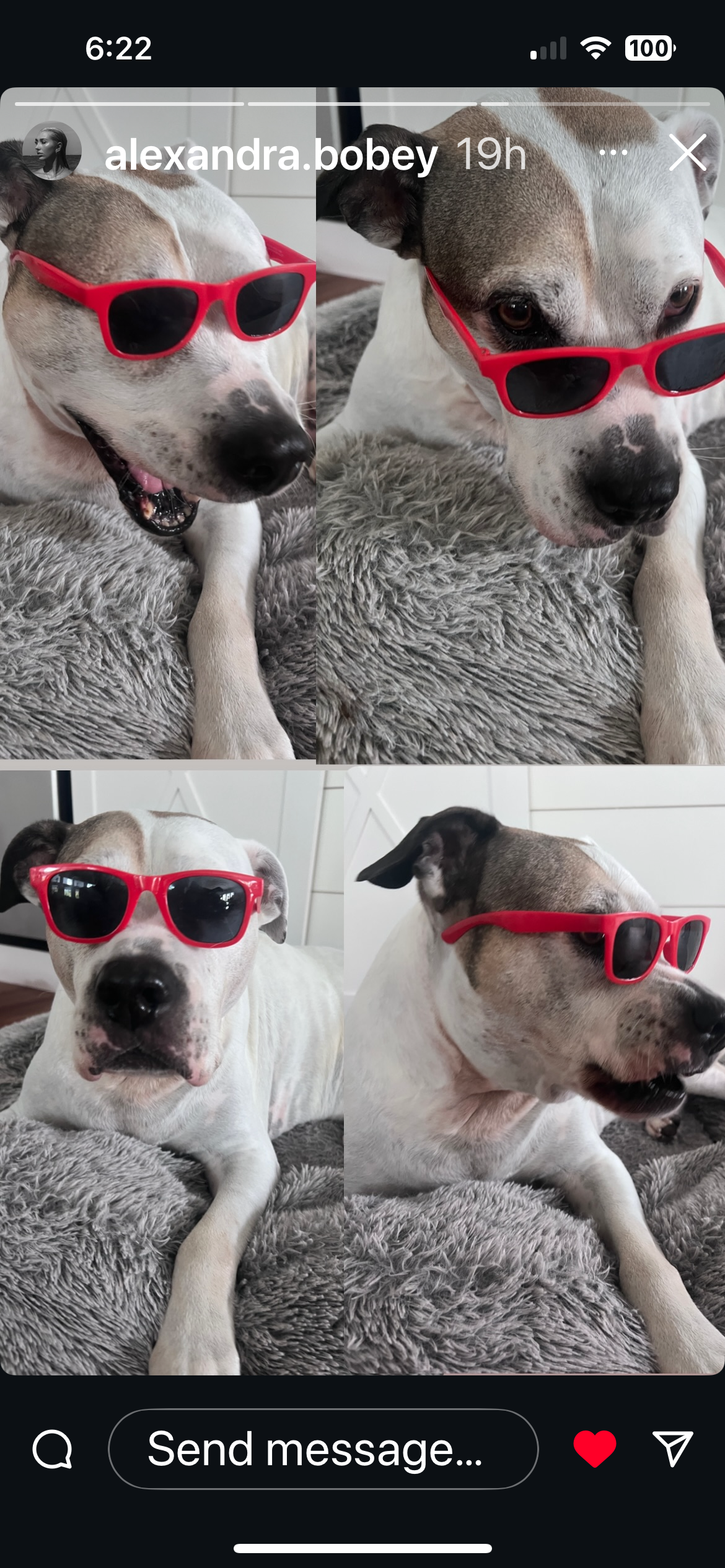- Water Protector 🌊
Rona Bobey
"Reduce plastic use and educate others so they feel the need to help the environment as well. "
POINTS TOTAL
- 0 TODAY
- 0 THIS WEEK
- 973 TOTAL
participant impact
-
UP TO2.0low-plastic mealsconsumed
-
UP TO177plastic itemsavoided
-
UP TO3.0bags of littercollected
-
UP TO1.0plastics auditconducted
-
UP TO96ideasshared
-
UP TO125individualsrecognized for sustainability
-
UP TO92conversationswith people
-
UP TO16advocacy actionscompleted
-
UP TO3.0community eventshosted or attended
-
UP TO309minutesspent learning
Rona's actions
Level Up: Influence Friends and Family
Create a reminder system or routine for remembering reusables
Even the best intentions can be forgotten in the rush of daily life. I will create a system — like a note on the door or a checklist — to help me and others in my household remember to grab our reusables before we go.
Level Up: Influence Friends and Family
Visit a local recycling center, landfill, or transfer station
Seeing where waste goes can change how we think about what we throw away. I will visit a local facility to learn more about the waste stream in my community and share what I learn with others and in the feed.
Level Up: Influence Friends and Family
Make a room plastic-free with someone else
Transforming a space together can build momentum and spark conversation. I will work with someone else to remove or replace plastics in one room of our home or work place, such as the kitchen, lunch room, or bathroom.
Lead the Way: Shape Your Community
Organize a plastic audit in my workplace or community group
Understanding what types of plastic show up most can inspire smarter solutions. I will organize or take part in a group plastic audit to track what’s being used and start a conversation about alternatives.
Lead the Way: Shape Your Community
Create or distribute a guide to reducing plastic in my community, organization, or a group
Clear, accessible information makes it easier for others to take action. I will create or share a simple guide with tips, resources, or local options to help people in my community, organization, or group reduce plastic use.
Lead the Way: Shape Your Community
Participate in or organize a community clean up
Plastic pollution is visible in many communities. I will take part in or organize a cleanup event to remove litter, raise awareness, and spark conversations about how plastic ends up in our environment.
Level Up: Influence Friends and Family
Invite others to join the Ecochallenge
Our actions are more powerful when we take them together. I will invite someone to join the Ecochallenge with me so we can learn and take action together.
Level Up: Influence Friends and Family
Prepare a low-plastic meal with a friend or family member
Reducing plastic can be easier — and more fun — when shared. I will plan and prepare a meal with friends or family that minimizes single-use packaging and plastic waste.
Level Up: Influence Friends and Family
Start a household challenge to reduce plastic
Change starts at home. I will create a fun challenge with my household — like using no single-use plastic for a day or swapping out a product — to make plastic reduction a shared goal.
Level Up: Influence Friends and Family
Host or attend a clothing swap
Fast fashion is a major source of plastic pollution. I will organize a clothing swap with friends, neighbors, or coworkers to keep clothes in use longer, reduce plastic-based textiles, and build community.
Level Up: Influence Friends and Family
Swap ideas for reducing plastic with someone close to you
Sharing ideas helps us stay motivated and discover new ways to take action. I will share ideas with friends or family members about ways we each reduce plastic in our lives.
Level Up: Influence Friends and Family
Keep my reusable kit with me and model it in public
My everyday choices can influence others. I will carry and use a reusable kit in public spaces, modeling plastic-reducing behaviors and showing that small changes are possible.
Level Up: Influence Friends and Family
Celebrate someone else’s plastic-free effort
Positive reinforcement goes a long way in fostering sustainable change. I will celebrate someone’s effort to reduce plastic — whether big or small — by acknowledging their success in the feed or on social media and encouraging them to keep going.
Level Up: Influence Friends and Family
Catch microplastics in laundry before they spread
Washing synthetic fabrics releases tiny plastic fibers that end up in our waterways. I will install a washing machine filter or use a microplastic-catching device to capture microplastics before they leave my home — and I will share what I did and why with others to inspire more sustainable laundry habits.
Level Up: Influence Friends and Family
Give a small gift that helps someone reduce plastic (e.g., tote, bottle, soap bar)
Giving can be an act of change and inspiration. I will give a thoughtful, plastic-free or plastic-reducing gift — like a reusable bag, bottle, or bar soap — to someone in my life and share why I chose it.
Level Up: Influence Friends and Family
Prep a reusable kit for on-the-go
Having reusables ready and integrated into your daily routine can help you avoid single-use plastic while out and about. I will put together a kit with items like a mug, water bottle, utensils, or tote bag to take with me when I leave the house.
Level Up: Influence Friends and Family
Pack a low or no-plastic lunch and talk about it with others
Food packaging is a major source of plastic. I will pack a lunch with little or no plastic and use it as a conversation starter with coworkers, classmates, or friends to share tips and inspire change.
Lead the Way: Shape Your Community
Start a plastic reduction conversation at school, work, or a community group
Big changes often begin with one bold conversation. I will bring up the topic of reducing plastic at school, work, or in a group I’m part of, planting the seed for collective action.
Lead the Way: Shape Your Community
Set up a Free Store for surplus items
Sharing or giving away unwanted items can reduce plastic waste and build community connections. I will set up or promote a free store at my workplace, school, or church to help redistribute surplus items — like office supplies, kitchenware, clothing, or books — and keep them in use rather than buying new.
Lead the Way: Shape Your Community
Encourage my workplace to switch to reusable products
Every reusable cup, plate, or utensil at work makes a difference. I will talk with my team or leadership about switching to reusable products in shared spaces like break rooms or kitchens.
Lead the Way: Shape Your Community
Host a “bring your own container” lunch or event
Gatherings are a great time to model new habits. I will plan or participate in a lunch or event where people bring their own containers, utensils, or cups to reduce single-use plastic.
Lead the Way: Shape Your Community
Find or suggest a refill station or reusable system
Access is key to making sustainable choices easier. I will suggest a refill station (like for water, soap, or dry goods) or a returnable container system in a space I use regularly — such as a school, office, store, or gym — to help make plastic-free options more visible and convenient for everyone.
Lead the Way: Shape Your Community
Promote plastic awareness during an event or meeting
Events are powerful moments to inspire change. I will include a brief message, resource, or tip about reducing plastic at a meeting, celebration, or community gathering I attend or help organize.
Lead the Way: Shape Your Community
Teach or learn a skill to extend the life of a product I have
Learning or sharing repair skills can keep useful items in use and out of the landfill. I will teach or learn a skill to extend the life of a product — like sewing, electronic repair, or furniture restoration — and share what I did with my community, workplace, or group to encourage others to do the same.
Lead the Way: Shape Your Community
Learn about community-level options to reduce plastic
Widespread change starts with local action and community innovation. I will spend 5 minutes learning about programs or initiatives in my area that reduce plastic use, such as third-party sanitization services, repair cafes, food gleaning, lending libraries, bulk or thrift stores, bans on single-use items, or zero-waste businesses.
Participant Feed
-
REFLECTION QUESTION
 Lead the Way: Shape Your CommunityWhat’s one thing you learned that surprised you about your community’s plastic systems or policies? Did you discover any new options to move beyond plastic or more sustainably dispose of plastic in your area? Share it in the feed!
Lead the Way: Shape Your CommunityWhat’s one thing you learned that surprised you about your community’s plastic systems or policies? Did you discover any new options to move beyond plastic or more sustainably dispose of plastic in your area? Share it in the feed!
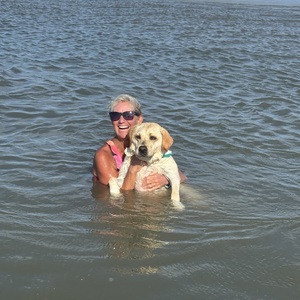 Rona Bobey 7/31/2025 10:50 AMI was so excited when CHS County had lawyers look into the extra thick bags that some companies began to use when the county implemented no plastic laws. It was a Loophole and now they all are using paper bags which are so much better than plastic bags for environment.
Rona Bobey 7/31/2025 10:50 AMI was so excited when CHS County had lawyers look into the extra thick bags that some companies began to use when the county implemented no plastic laws. It was a Loophole and now they all are using paper bags which are so much better than plastic bags for environment. -
REFLECTION QUESTION
 Level Up: Influence Friends and FamilyWhat new ideas or perspectives came up in your conversation? Did anything surprise or challenge you? Did anyone share ways they reduce plastics with you? If so, post the new ideas in the feed!
Level Up: Influence Friends and FamilyWhat new ideas or perspectives came up in your conversation? Did anything surprise or challenge you? Did anyone share ways they reduce plastics with you? If so, post the new ideas in the feed!
 Rona Bobey 7/31/2025 10:45 AM
Rona Bobey 7/31/2025 10:45 AM- Water Protector 🌊
I purchased reusable silicone zip lock bags to try and reduce the plastic in my lunches. I find them great and they are washable and even dishwasher safe! -
 Rona Bobey 7/31/2025 10:29 AM
Rona Bobey 7/31/2025 10:29 AM- Water Protector 🌊
-
 Nara S 7/31/2025 10:55 AM
Nara S 7/31/2025 10:55 AM- Plant Parent 🪴
-
 Rona Bobey 7/29/2025 7:59 AM
Rona Bobey 7/29/2025 7:59 AM- Water Protector 🌊
-
 Rona Bobey 7/26/2025 5:12 AM
Rona Bobey 7/26/2025 5:12 AM- Water Protector 🌊
I have a rule of picking up at least 3 pieces of trash each time I go to beach - when you go with others I share this and they do same! Hope they share with others to get everyone who visits the beach to not only clean up what they bring but take 3 pieces from others that have washed up or been left on beach.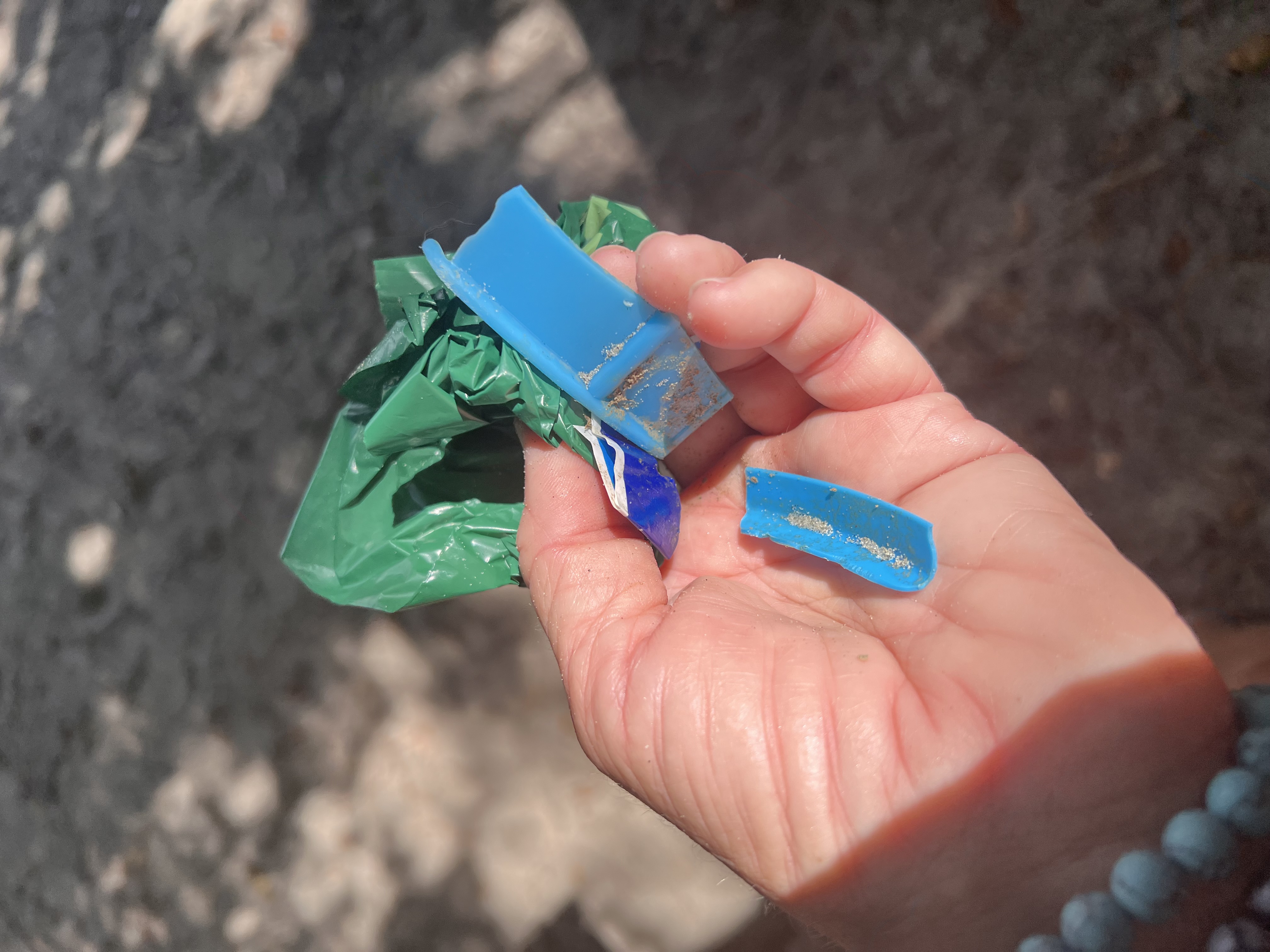
-
 Fred Desai 7/26/2025 7:20 AM
Fred Desai 7/26/2025 7:20 AM- TEAM CAPTAIN
Thanks great, Rona. In addition to the people u talk to about this action, there are likely others who observe u do that and may get inspired to do so themselves as well.
-
 Rona Bobey 7/25/2025 3:36 AM
Rona Bobey 7/25/2025 3:36 AM- Water Protector 🌊
-
 Rona Bobey 7/22/2025 6:12 AM
Rona Bobey 7/22/2025 6:12 AM- Water Protector 🌊
- Walked Sullivan’s Island with my Pup & daughter and. Picked up 4 pairs of Sunnies in low tide to recycle! Also several pieces of other trash while enjoying the beach!
-
 Rona Bobey 7/19/2025 11:59 AM
Rona Bobey 7/19/2025 11:59 AM- Water Protector 🌊
Gave a local goat milk local soap to a friend for gift with a loofah.-
 Julie Mapes 7/19/2025 4:43 PM
Julie Mapes 7/19/2025 4:43 PM- TEAM CAPTAIN
-
 Rona Bobey 7/17/2025 7:44 AM
Rona Bobey 7/17/2025 7:44 AM- Water Protector 🌊
I would like to celebrate Rich with GS! He has researched and shares interesting information about reducing plastics in our lives everyday for our morning meetings!-
 AJ Warren 7/18/2025 10:02 AM
AJ Warren 7/18/2025 10:02 AM- Pet Parent 🐾
The perfect shout out! He has done such a wonderful job going above and beyond to help educate everyone about how we can reduce plastic use in our everyday lives in a very digestible way. Props to Rich for doing this and to you as well for recognizing his work and shouting him out. (:
-
 Rona Bobey 7/15/2025 3:52 AM
Rona Bobey 7/15/2025 3:52 AM- Water Protector 🌊
Swam out in Beaufort River to grab this as it floated out toward the open ocean as tide was going out.
